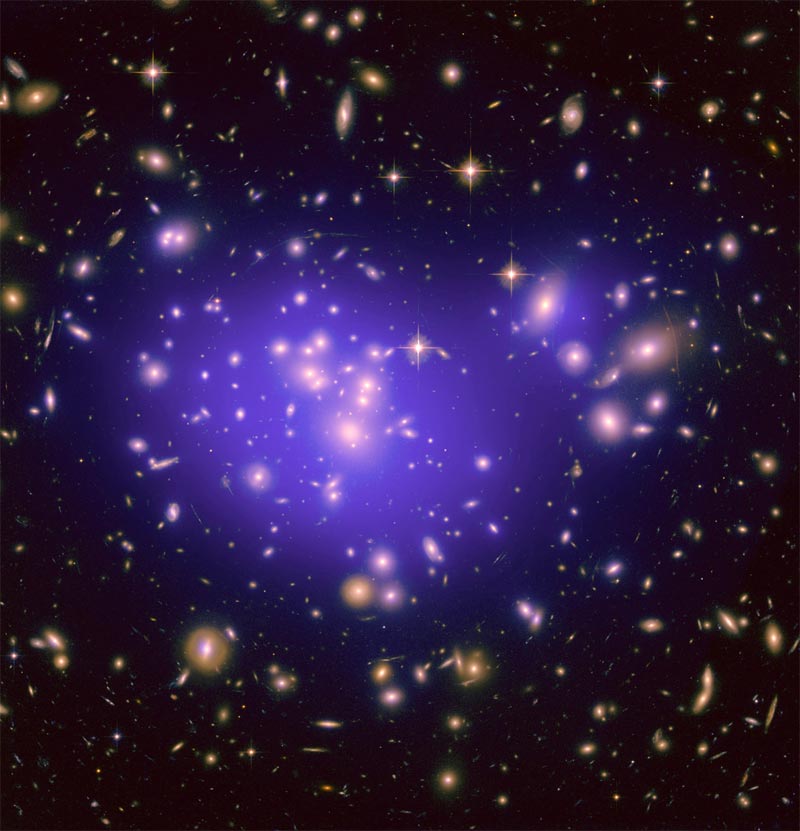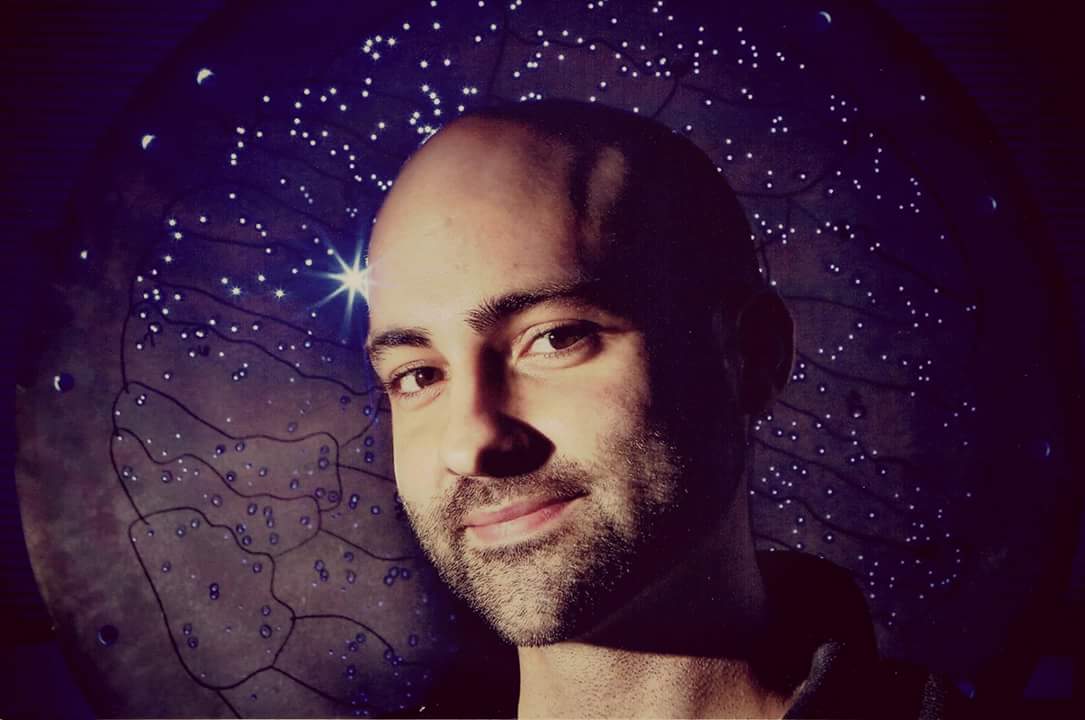
The problems with modern physics
Physicists have certainly achieved a lot, but many mysteries about the universe remain.

Breaking space news, the latest updates on rocket launches, skywatching events and more!
You are now subscribed
Your newsletter sign-up was successful
Want to add more newsletters?

Delivered daily
Daily Newsletter
Breaking space news, the latest updates on rocket launches, skywatching events and more!

Once a month
Watch This Space
Sign up to our monthly entertainment newsletter to keep up with all our coverage of the latest sci-fi and space movies, tv shows, games and books.

Once a week
Night Sky This Week
Discover this week's must-see night sky events, moon phases, and stunning astrophotos. Sign up for our skywatching newsletter and explore the universe with us!

Twice a month
Strange New Words
Space.com's Sci-Fi Reader's Club. Read a sci-fi short story every month and join a virtual community of fellow science fiction fans!
Paul M. Sutter is an astrophysicist at Stony Brook University and the Flatiron Institute, host of Ask a Spaceman and Space Radio, and author of "Your Place in the Universe." Sutter contributed this article to Space.com's Expert Voices: Op-Ed & Insights.
Modern physics has many achievements to be proud of. A quantum understanding of three of the forces of nature. A beautiful, elegant description of gravity though the bending of space-time. An understanding of the history of our universe stretching back billions of years.
Physicists should rightly pat themselves on the back for such a bang-up job. This is isn't easy stuff.
And yet, mysteries abound, and sometimes we feel more in the dark than we did 100 years ago. Let's explore some of the major issues that modern physics is still trying to understand.
Related: The History & Structure of the Universe (Infographic)
Bring everyone together
The early 1900s was such a simple time. We had our theory of electromagnetism, which elegantly and simply unified our understanding of electricity, magnetism and radiation. It was awesome. And we also had Newton's laws, which provided a solid framework for understanding motion. These two pillars propped up our physical world. It was great.
Then folks like Albert Einstein had to come and smash it all. With special relativity, we had to completely rewrite our notions of time, space, distance and speed. And with quantum mechanics, we had to sit down and have a serious rethink about … well, basically all of fundamental reality.
Breaking space news, the latest updates on rocket launches, skywatching events and more!
And so physicists undertook a massive program of unification, trying to put all physics laws under a single roof. And they were largely successful: special relativity married to gravity gave us general relativity. Special relativity combined with quantum mechanics led to the quantum field theories, which went on to enhance our understanding of the electromagnetic force, and once they were discovered, the strong and weak nuclear forces.
We didn't stop the train there. Experiments and theory in the 1950s revealed that the electromagnetic and weak nuclear forces were actually two sides of the same "electroweak" coin — these forces merged into one entity at high energies. Not to be outdone, so-called Grand Unified Theories put forward attempts to fold in the strong nuclear force as well.
The last force standing independently is gravity. And still today, decades later, we have no quantum description of gravity. And we've worked really hard on the problem, but every time we try to apply quantum techniques to Einstein's force, the math goes haywire and we can't make predictions.
Why? Who knows.
What can we do to fix it? Who knows.
Related: 8 Baffling Astronomy Mysteries
But why this universe?
Certain physics constants rule our everyday experience. The speed of light. The charge on the electron. The strength of the weak nuclear force. All in all, about 18 individual numbers need to be plugged into the Standard Model — our quantum framework for three of the four forces of nature and all the particles that make up the building blocks of our world — to make it work.
The Standard Model simply can't explain why we have the forces of nature that we do, why we have the families of particles that we do, why those forces and particles act the way they do and basically any other question that starts with the word "why."
In fact, the way the creaky mathematical machinery behind the Standard Model works, those constants must be measured experimentally and plugged into a few key places in the equations; otherwise all the calculations blow up. It's a slightly uncomfortable sensation to know that our math wouldn't be able to make predictions without these constants plugged in.
The strengths of the forces are particularly troublesome, especially gravity. Gravity is so embarrassingly weak: it's billions upon billions of times weaker than the weak nuclear force. Let that sink in: gravity is even weaker than the force with "weak" literally in its name.
Why? This is called the hierarchy problem. We don't have a solution, just a name for the problem.
Seeing in the dark
Our troubles aren't limited to theoretical pursuits to unify the forces, questionable mathematics and puzzling particle collider results. Starting a few decades, astronomers decided that we didn't have enough problems and tossed in a brand-new ingredient to the universe: dark matter.
We know that dark matter exists: we see evidence for it everywhere from the motion of stars inside galaxies to the background light left over from the earliest days of the universe. And while we understand a lot about what dark matter must act like, we haven't nailed down the culprit. We can only detect it through its gravitational effects, and astronomers suspect that it's a new kind of particle, hitherto unknown to the Standard Model, that floods the universe but does not interact through the electromagnetic force, making it completely invisible.
And then there's dark energy.
In the late 1990s, astronomers discovered — and we've backed this up since then with a host of independent observations — that the expansion of our universe is accelerating.
We have absolutely no idea what's causing this.
Our best guess is that it has something to do with the energy locked in the vacuum of space-time itself, but our simplest, most naïve calculations estimate a strength of dark energy that's about 10,120 orders of magnitude too high.
Whoops.
So that's a big mystery. As far as we can tell, we're not misunderstanding something about the way gravity works at the largest scales, so whatever is causing dark energy must be a new ingredient character operating in the cosmos.
As to more details in the pursuit of pinning down this strange acceleration, we're at a loss.
But at least we have some job security.
- The Universe: Big Bang to Now in 10 Easy Steps
- Gallery: Dark Matter Throughout the Universe
- The Four Fundamental Forces of Nature
Learn more by listening to the episode "Is String Theory Worth It? (Part 1: Unify This!)" on the Ask A Spaceman podcast, available on iTunes and on the Web at http://www.askaspaceman.com. Thanks to John C., Zachary H., @edit_room, Matthew Y., Christopher L., Krizna W., Sayan P., Neha S., Zachary H., Joyce S., Mauricio M., @shrenicshah, Panos T., Dhruv R., Maria A., Ter B., oiSnowy, Evan T., Dan M., Jon T., @twblanchard, Aurie, Christopher M., @unplugged_wire, Giacomo S., Gully F. for the questions that led to this piece! Ask your own question on Twitter using #AskASpaceman or by following Paul @PaulMattSutter and facebook.com/PaulMattSutter.
Follow us on Twitter @Spacedotcom or Facebook.


Paul M. Sutter is a cosmologist at Johns Hopkins University, host of Ask a Spaceman, and author of How to Die in Space.


